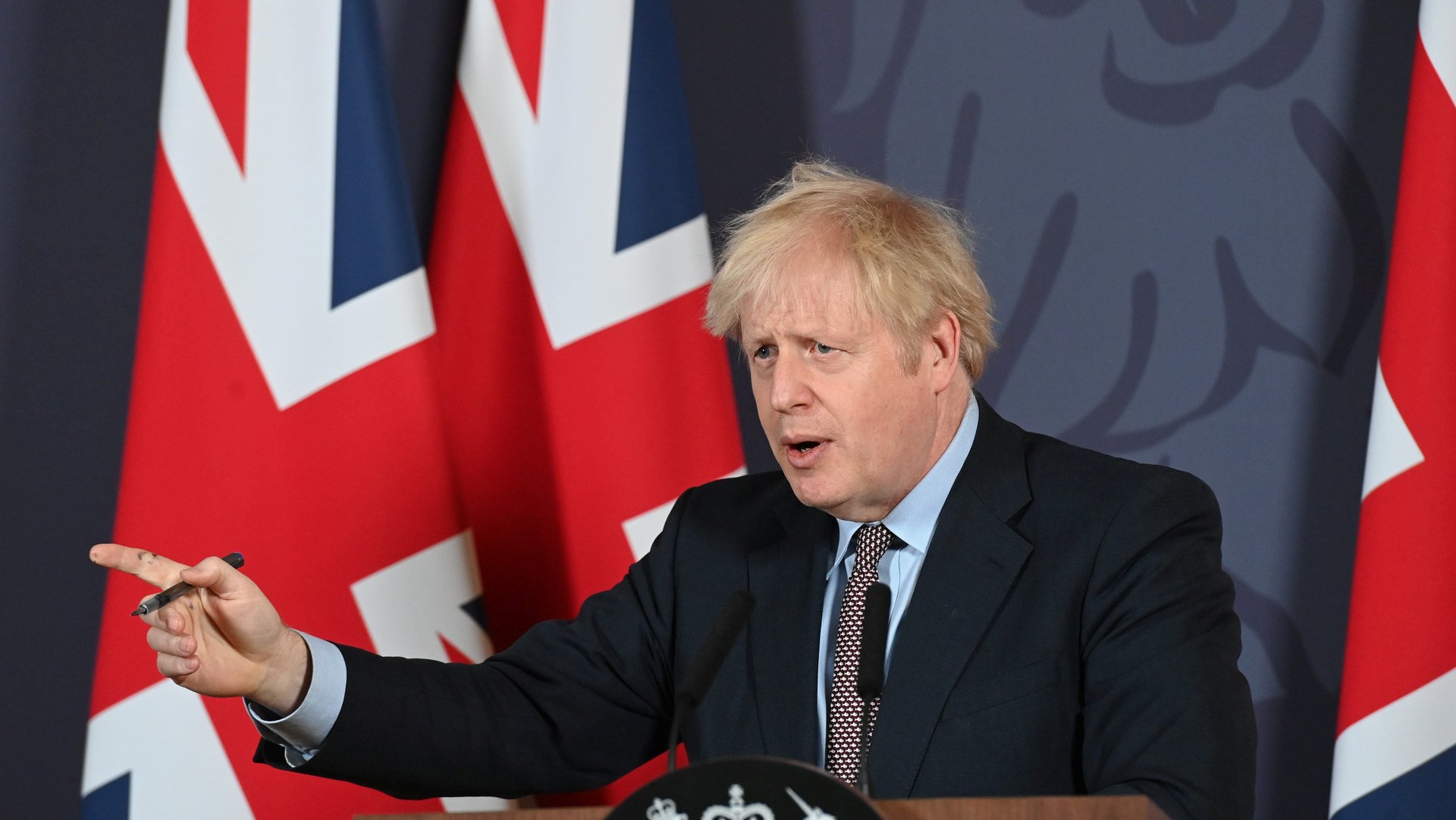The Brexit deal is done but the damage to the UK economy is just getting started
The UK and EU have reached a trade agreement, avoiding the specter of a no-deal Brexit and ending years of extreme economic uncertainty on both sides. But economists warn that the costs of Brexit are still large, and will hamper the UK economy in particular for years to come.


The UK and EU have reached a trade agreement, avoiding the specter of a no-deal Brexit and ending years of extreme economic uncertainty on both sides. But economists warn that the costs of Brexit are still large, and will hamper the UK economy in particular for years to come.
“The hangover of Brexit starts now,” says Nicholas Bloom, an economist at Stanford who has studied the economic effects of the 2016 referendum.
Economists at Citigroup estimate that the UK economy will produce 2% to 2.5% less in 2021 than it would have with an extension of ties with the EU.
But in the short term there also are benefits for both the EU and the UK.
“On the positive, it removes the uncertainty,” says Bloom. His research over the past four years has found that the uncertainty around Brexit has caused UK firms to delay investment and hiring. It also has sucked up managers’ time and attention: the average UK CEO spent about a week and a half annually on Brexit planning.
In 2021, the UK will benefit from a “certainty dividend,” according to Bloom—though it may not be large enough to account for the additional costs that come with leaving the EU.
“Britain has punched itself in the face”
In the long-run, economists expect the UK to be richer than it would have been under a “hard Brexit”—in which the UK and EU fell back on WTO rules governing trade—but substantially poorer than if it hadn’t left the EU at all.
“On Brexit, a thin deal is better than none,” tweeted Adam Posen, president of the Peterson Institute, a US think tank, “but that’s like saying I had an amputation as scheduled, and turns out there was no post-op infection. So, could’ve been worse, but still not good. The UK will survive, but its people will have to work harder than they should to thrive.”
The UK government’s own estimate suggests a trade deal like the one agreed to this week would leave the country’s output 5% lower in 15 years than if Brexit hadn’t happened. Without such a deal, its estimate was 7.6% lower. (These estimates predate the announcement of the final deal).
These assessments are based on the assumptions that trade will become costlier, either because of higher tariffs or more red tape, and that immigration will decrease. Over time, these effects are expected to compound, because in the long run less trade and less immigration will mean less innovation and therefore less growth and lower incomes.
The impact of the deal will vary depending on the type of business in question. The European single market, which the UK is leaving, revolves around the “four freedoms” of free movement in goods, services, people, and capital.
“This deal looks like it maintains one and a half of them,” says Bloom. “There’s the freedom of goods, which is great,” and the free movement of capital will be mostly unimpeded. But the movement of services and people have both been lost.
“Britain has punched itself in the face,” he says. “It imports goods and exports services and it’s lost the freedom of services.”
An economic impact worse than Covid-19’s
Chemicals, mining, and electrical equipment top the list of sectors that will be most affected by Brexit in the long run, according to economists at the London School of Economics. “The sectors impacted by Brexit are generally different to those impacted by Covid-19,” the researchers write; business-to-business industries that have done reasonably well amid lockdowns will be among the sectors most affected by new trade restrictions.
An analysis by UK in a Changing Europe, a research organization funded by the UK government, estimated that Brexit’s ultimate economic cost to the UK would be larger than that of Covid-19. The latter has had much more significant economic consequences so far, with the UK economy contracting 20% between April and June. But whereas forecasters expect the UK economy to recover rapidly once a vaccine is widely available, they predict that less trade and immigration will have deep and prolonged effects.
“Brexit is like death by a thousand cuts,” Bloom told Quartz. “Covid is like being hit three times by a baseball bat. In the long run Brexit is seen as far worse, actually.”